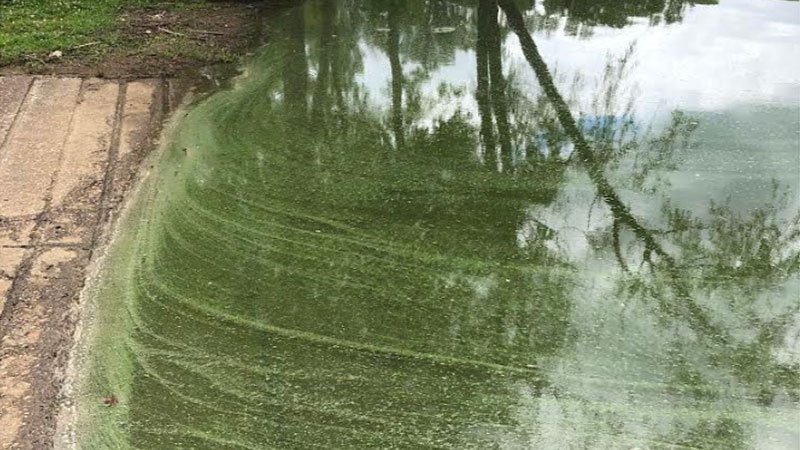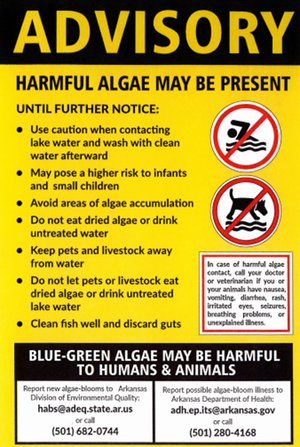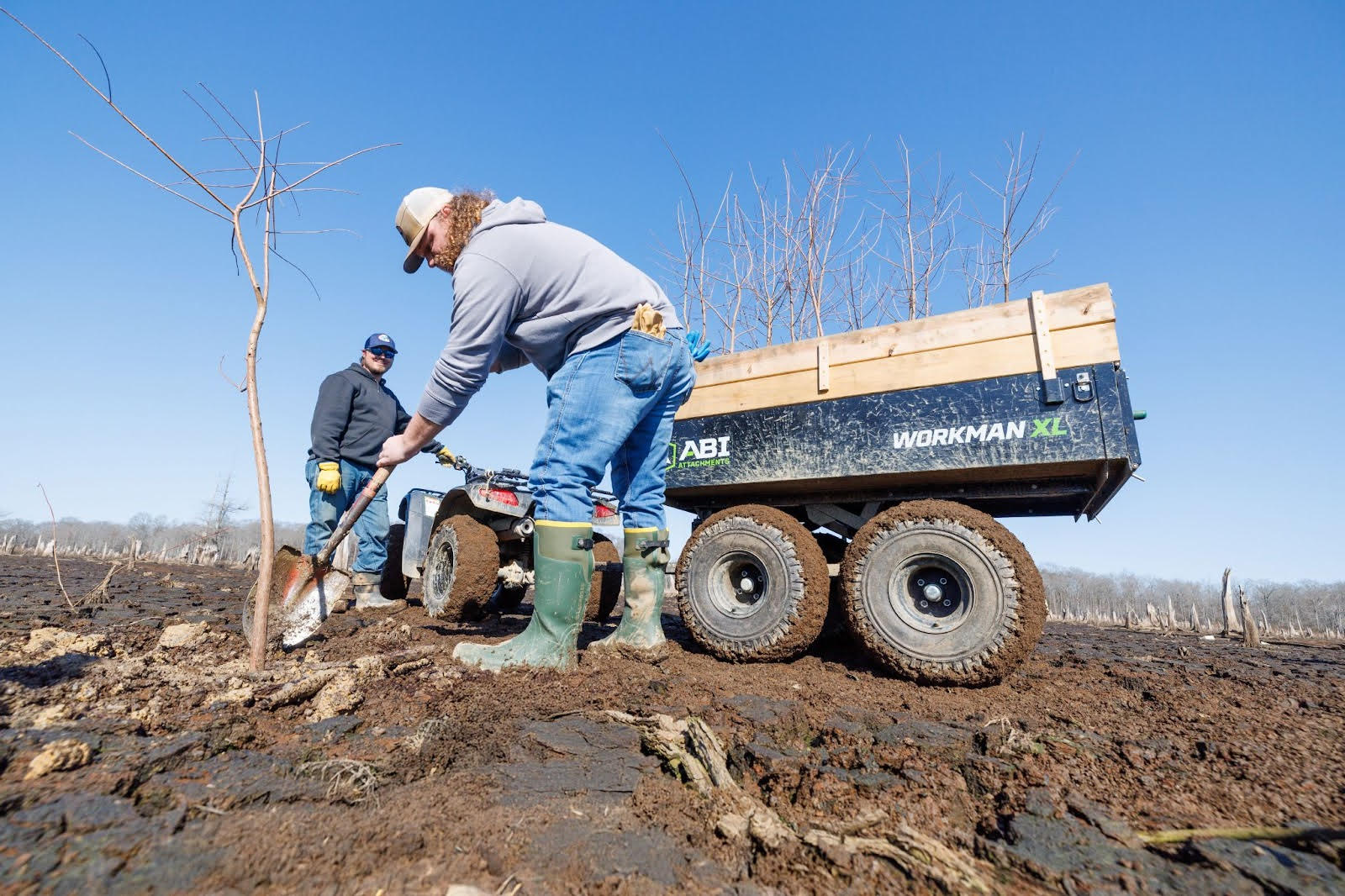AGFC issues advisory for Lake Overcup
ON 05-21-2020

May 21, 2020
Randy Zellers
Assistant Chief of Communications

MORRILTON — Recently a Harmful Algae Bloom Advisory (HAB) was issued for Lake Overcup due to elevated levels of a toxin called microcystin. This increase in toxins is caused by excessive blue-green algae. When blue-green algae die and break down, these toxins may be released into the water.
“These conditions usually are common in almost every body of water in Arkansas at some point and they’re temporary,” said Matt Schroeder, fisheries biologist for the Arkansas Game and Fish Commission in Mayflower. “It’s also important to remember that just because blue-green algae is present doesn’t mean that cyanotaxins are present.”
Schroeder said blue-green algae blooms were visually detected on lakes Conway, Harris Brake, Brewer and Atkins this year as well, but the levels of toxin were much lower in these lakes. The toxin levels in Overcup also were not uniform, and the HAB was issued from a very localized measurement.
“Blue-green algae blooms are triggered by excessive nutrient loading in the lake combined with warmer water temperatures,” Schroeder said.
If you observe a blue-green algae bloom you should avoid contact with the water. Do not swim in a lake or river with an ongoing blue-green algae bloom. Keep children and pets out of water with a blue-green algae bloom, as they are more susceptible to the toxin’s effects. Recreation involving minimal contact with the water, including boating and fishing can still be done if safety precautions are implemented. Just remember, any area that has come into contact with blue-green algae should be washed with soap and water.
“If you do find that you are coming in contact with the water, avoid touching your face and mouth as the primary route of exposure is through incidental ingestion,” Schroeder said. “Anglers who catch and keep fish are encouraged to wash and cook fish appropriately. There has been little evidence that toxins can be transferred to humans through eating fish. However, toxins typically produced by blue-green algae likely affect the liver, kidneys, and organs of fish more so than the muscle tissue, so wash fillets well and dispose of all internal organs properly.”
If you observe a new blue-green algae bloom, please report it to the Arkansas Division of Environmental Quality at habs@adeq.state.ar.us or call 501-682-0744. For more information about HAB, please see the Arkansas Water Resource Center Fact Sheet on how to identify algae blooms and the State of Arkansas HAB Response Plan at https://arkansas-water-center.uark.edu/publications/factsheets.php.
Recent News
Subscribe to Our Weekly Newsletter E-mails
Don’t miss another issue. Sign up now to receive the AGFC Wildlife Weekly Newsletter in your mailbox every Wednesday afternoon (Waterfowl Reports are published weekly during waterfowl season and periodically outside the season). Fishing Reports arrive on Thursdays. Fill in the following fields and hit submit. Thanks, and welcome!


